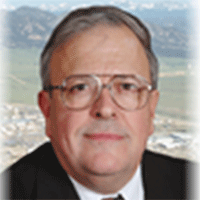
Robert Iotti, PhD
Retired
Dr. Iotti has 50-plus years experience in the nuclear industry, including strategic planning; engineering, design, construction; environmental management; cleanup and decommissioning; and program management and oversight for multibillion dollar, complex nuclear endeavors for Industry and the US Government. He has had, not only executive management oversight, but direct personal involvement in solving technical and management problems on several commercial nuclear power plant and DOE projects, including five major environmental projects: Rocky Flats, Hanford Tank Farms, Savannah River D&D, Miamisburg/Mound, and Idaho Cleanup Project — resulting in successful reduction of a significant portion of the US nuclear infrastructure footprint, and retrieval of high level waste from tanks.
From 2007, when he was appointed to serve on the Management Advisory Committee (MAC) for the International Thermonuclear Experimental Reactor (ITER) project being constructed in France, he chaired and then continued as a contributor to the MAC, until the Member States elected him Chair of the ITER Council in 2014, a position he occupied until the end of 2016. He remain involved in that fusion program
In his management effort, at the Idaho Clean-up Project (ICP), Dr. Iotti was responsible for setting the strategic vision; managing the $ 2.9 B project, interacting with the DOE, Defense Nuclear Facilities Safety Board (DNFSB), regulators, Congressional delegations, Citizens’ Advisory Boards and other stakeholders, including opponents, to develop a regulatory framework and risk reduction approach to achieve the vision of accelerating the Idaho site cleanup and rapidly reducing the footprint of facilities no longer needed. He was instrumental in the successful settlement between DOE and the State of Idaho regarding exhumation and disposal of buried transuranic (TRU) waste, for which he received the Secretary of Energy "Achievement Award."
Dr. Iotti retired in 2009, but has remained active in the industry. He currently manages the design of an advanced reactor concept employing sodium cooled fast reactor technology: the ARC-100, under a DOE contract which involves close cooperation with the Argonne, Idaho and Sandia National Laboratories.
The ARC 100 facility consists of a 100 Mwe sodium cooled pool type metal fueled fast reactor housed in a seismically isolated reactor building with a supercritical carbon dioxide Brayton cycle power conversion system rejecting heat to the atmosphere via air cooled heat exchangers.